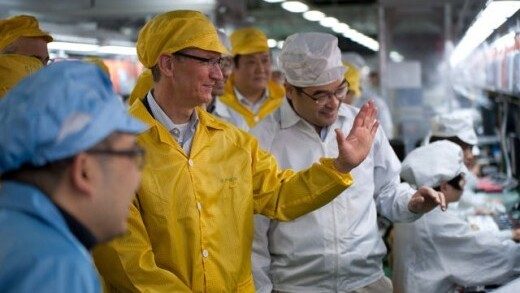
Apple has provided a more detailed insight into its efforts to end excessive overtime and longer working weeks in its supply chain, highlighting in its monthly Supplier Responsibility report that it had increased compliance to the 60-hour work week to 95%.
The company said its compliance levels rose from 84% to 89% between January and February, with workers averaging a 48 hour working week. Over the course of March, Apple tightened compliance levels even further, with the same set of suppliers increasing to 95%.
Encouraged by its success, Apple has said it has expanded its weekly tracking to a larger number of facilities deeper in its supply chain, ensuring that it now monitors compliance of over 800,000 workers, having originally tracked 500,000 in its previous reports.
Results for its wider tracking are encouraging also. Assessing a broader set of suppliers, Apple saw 91% compliance in March, increasing levels despite checking 300,000 more workers.
Apple’s commitment to notifying consumers and its investors of its relationships with suppliers in Asia comes after the company came under fire over a number of alleged worker violations. This included high levels of employee suicides at Foxconn factories, despite the fact levels were lower than the Chinese national average.
It has also been accused of employing underage workers and forcing staff to work longer hours to meet demand for its products.
To remain transparent, Apple joined the Fair Labor Association as a Participating Company, becoming the first technology company to do so. The FLA’s role is to independently assess the quality of Apple’s supply chain, with the results reported on its website.
For the first time ever, Apple also released a list of its official suppliers on its supplier responsibility page. This is significant because Apple has previously been notoriously secretive about who supplies its components. The list reveals over 150 different suppliers, providing clues into who Apple partners with to manufacture its bestselling electronic products.
At the end of March, the Fair Labor Association published an extensive report on Apple supplier Foxconn’s labor practices and found extensive violations in areas like payroll, working schedules and health and safety risks.
At a conference in February, Apple’s CEO Tim Cook said that “No one is doing more to improve working conditions in China than Apple,” but that the company could, and would, do more.
To that end, Apple asked the FLA to investigate the working conditions at its suppliers in China. After initially stating that Apple had corrected many issues and that Foxconn’s facilities weren’t all that bad, the head of the FLA said that there were ‘tons of issues‘.
Apple remains one of the only major technology companies that is committed to ensuring its supply chain operates safely and within the law. Tim Cook knows the company has a long way to go, but it results will be free for all to view on its official website.
Get the TNW newsletter
Get the most important tech news in your inbox each week.






